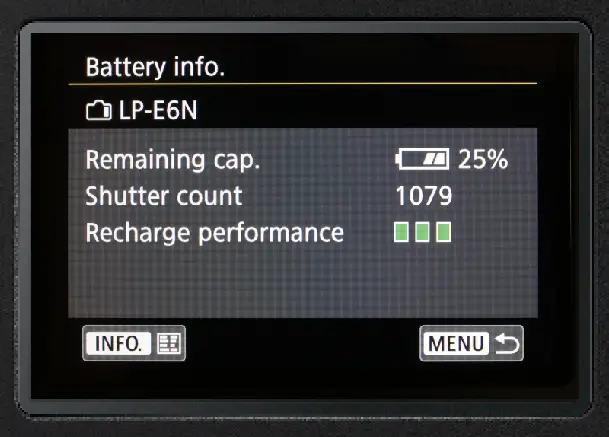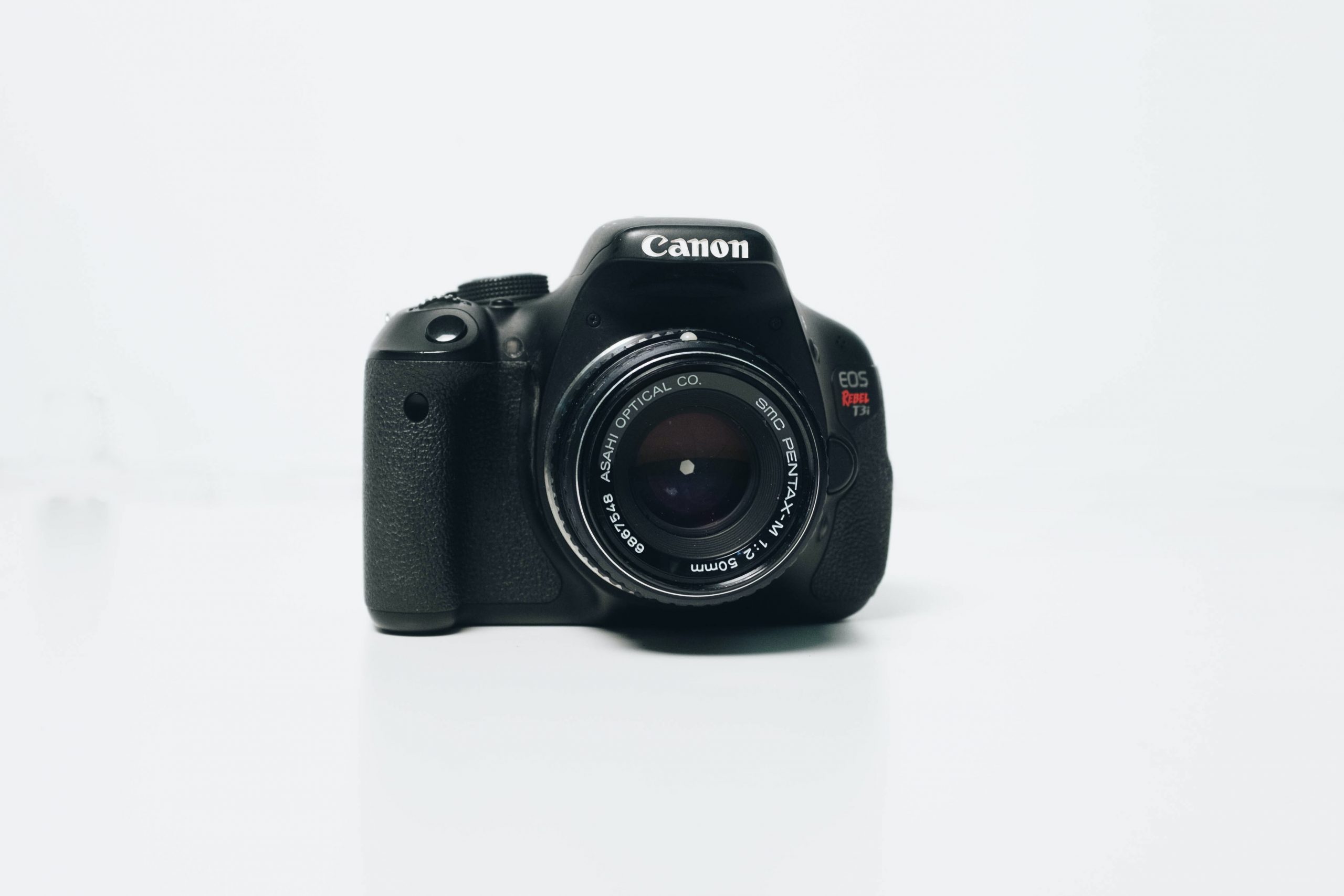For a photographer or videographer, the question of vital importance is how long does a canon camera battery take to charge. Camera batteries are a priceless piece of gear. They are, in reality, the camera’s mitochondria, as any shutterbug knows. As a result, it is critical to look after them.
When you charge the battery, one of the processes in the maintenance process occurs. As a result, you must understand how long to charge or how long does camera battery last to ensure that it receives the proper amount of power. Let’s go over it with a few different brands.
Read Also: How long does canon camera battery last?
How long does a canon camera battery take to charge?
At 23°C / 73°C, it takes about 2 hours to fully recharge a completely depleted battery. The amount of time it takes to recharge the battery is determined by the ambient temperature, battery health, battery capacity, and type of charger.
Recharging in low temperatures (6°C–10°C / 43°F–50°F) will take longer for safety reasons (up to 4 hours).
The charging time of different Canon batteries
Canon has three different kinds of battery chargers for the camera that are:
- Canon LC-E6 camera battery charger
- Canon LP-E6N camera battery charger
- Canon LP-E6NH battery charger
The comparison between different Canon camera batteries’ capacity and charging time is given at the end of this segment.
How long does Canon LC-E6 camera charger take time to charge a battery?
Canon LC-E6 camera battery takes exact 2 hours to charge. Remember that this time is true for the battery that has a capacity of 1800mAH and is being charged at a temperature of 23°C/73°F.
How long does Canon LP-E6N camera charger take time to charge a battery?
Canon LP-E6N camera battery takes exact 2 hours 10 minutes to charge. Remember that this time is true for the battery that has a capacity of 1865mAH and is being charged at a temperature of 23°C/73°F.
How long does Canon LP-E6NH camera charger take time to charge a battery?
Canon LP-E6NH camera battery takes exact 2 hours 47minutes to charge. Remember that this time is true for the battery that has a capacity of 2130mAH and is being charged at a temperature of 23°C/73°F.
| Battery | Capacity(mAh) | Ambient Temp(°C/°F) | Charging Time(Hr Min) |
| LP-E6 | 1800 | 23/73 | 2hr 00min |
| LP-E6N | 1865 | 23/73 | 2hr 10min |
| LP-E6NH | 2130 | 23/73 | 2hr 47min |
Factors that affect the battery charging time of cameras
These are the factors that affect the battery charging time of a canon camera:
- Recharge performance of the battery
- Battery capacity
- Battery quality
- Method of charging
- Battery age
- Ambient Temperature
- Remaining battery capacity
How does recharge performance affect the camera battery charging time?
The recharge performance of Lithium-ion batteries degrades with age, which can be seen on a Canon EOS camera’s Battery info menu page.
The number of recharge cycles and even the recharge settings, such as recharging at higher temperatures, will affect the recharge performance.
The degradation of older Lithium-ion batteries is caused by a gradual rise in the battery’s internal resistance. Because older lithium-ion batteries have higher internal resistance, they may take longer to fully charge.
Three green bars on the battery info menu page mean that each time the battery is charged, it provides full performance.

Two green bars on the battery info menu page mean that when the battery is charged, it still produces adequate power, but not to the level of a fresh battery.

One green bar on the battery info menu page means that a complete recharge will not provide the same performance as a new one. The battery is towards the end of its useful life

One red bar on the battery info menu page means that the battery has reached the end of its service life and should be replaced with a new one. Its performance will not be improved by recharging or reconditioning it.

The list of Canon cameras that feature battery info screen:
- EOS-1D Mark III
- EOS-1D Mark IV
- EOS-1D X
- EOS-1D X Mark II
- EOS-1D X Mark III
- EOS-1Ds Mark III
- EOS 5D Mark II
- EOS 5D Mark III
- EOS 5D Mark IV
- EOS 5DS / R
- EOS 6D
- EOS 6D Mark II
- EOS 7D
- EOS 7D Mark II
- EOS 60D
- EOS 70D
- EOS 77D
- EOS 80D
- EOS 90D
- EOS 750D/Rebel T6i
- EOS 760D/Rebel T6s
- EOS 800D/Rebel T7i
- EOS 850D/Rebel T8i
- EOS R
- EOS RP
- EOS R5a
- EOS R6
How does battery capacity play a role in charging time of a camera battery?
The charge time varies greatly based on the battery’s capacity and condition. If the battery has a larger capacity, it will take longer to charge to full capacity, however, if the battery capacity is low, it will take less time to fill the space.
For example, a battery that is already 60% charged will take less time than the battery that is complete;y drained or has only 10% charge left.
Battery capacity is one of the factors that can instantly make you understand how long does a canon camera battery take to charge.
How does the quality of battery alter the charging time of a camera battery?
Any of the LP-E6 series batteries can be used with the EOS R, Ra, R5, and R6. Despite the fact that the R and Ra come with the LP-E6N battery pack, and the R5 and R6 come with the LP-E6NH, any of these cameras can use the lower capacity LP-E6 power pack if necessary.
Because the maximum capacities of these three battery packs vary, their battery life and recharge timeframes will also change.
When the LP-E6N battery was debuted, it only delivered a 3.6 percent improvement over the previous LP-E6 battery pack, with a capacity of 1865mAh.This explains why both batteries take the same amount of time to charge.
The LP-E6NH power pack, on the other hand, has an 18% higher capacity than the LP-E6 and a 14% higher capacity than the LP-E6N. This explains why the LP-E6NH takes a long time to charge compared to the two previous batteries. The table below shows how long it takes to charge them using an LC-E6E charger at 23°C/73°F.
Read Also: How to turn On a wet canon camera?
How does method of charging affect the charging time of a camera battery?
The length of time it takes to charge is determined by the charging mode. If you use a normal Canon charger, for example, the battery will charge faster. Similarly, if you use a low-quality charger, charging the camera’s battery will take longer.
In addition, the quality of the cable has a role. A high-quality cable will aid in quick charging and vice versa. Also, if you’re using a wireless charger, know that it’s slower than using a regular charger.
The point is that the charging time will vary depending on the charger you use. A standard Canon charger will charge the battery in less time than a third-party charger.
Assume you’re using LP-E6NH batteries that are charged at room temperature. The battery will be fully charged in 2hr 47min if you use a normal charger. The identical batteries take 12 minutes longer to fully charge with the PD-E1 Power Adapter, which takes 2hr 59min.
How does battery age affect the camera battery charging time?
Many of the batteries in use today may be extremely old. The EOS 5D Mark II, which was released in September 2008, was the first camera to use the LP-E6 battery.
If you have this model or one from around the same time, the batteries you’re using could be more than a decade old and have been recharged hundreds of times during that time.
Batteries can also deteriorate if they are laid flat or stored for an extended period of time without being used. This suggests that the battery state may have deteriorated even if you haven’t used the camera much.
If you’re traveling to a country with restricted access to mains electricity, battery quality is very critical.
You need to keep your batteries in excellent shape if you want them to last as long as possible.

How does ambient temperature affect?
The ambient temperature has an effect on the charging time of a battery. When the temperature is greater, the camera batteries take less time to charge, and when the temperature is lower, the camera batteries take slightly longer to charge.
At normal temperature, the Canon LP-E6N took two hours and ten minutes to fully charge using a Canon LC68 charger. While I charged the same battery at room temperature, it took 2 hours and 8 minutes to fully charge, compared to 2 hours and 8 minutes when charging at normal temperature.
Although charging speed increases as temperature rises, I would not recommend doing so on purpose because it will negatively impact your battery. It harms the battery, lowering its capacity and shortening its life cycle. You can entirely destroy the camera’s battery if you expose it to too much heat.
The camera produces a false positive message that the battery is full when the temperature is high, lowering the battery’s useable capacity. As a result, it will need to be charged more frequently, and you won’t be able to tax to achieve the desired battery life.
Low temperatures are the same, as the charge in the batteries is purposefully lowered. On the one hand, this will minimize overheating, but it will also lengthen the charging time. Furthermore, charging at lower temperatures promotes lithium plating, which can cause lasting battery damage.
These physical phenomena can lead you to a thought about how long does a canon camera battery take to charge.
How does remaining battery capacity influence the camera battery charging time?
The charging pace is also determined by the battery’s remaining charge capacity. If the battery is 10 to 20% charged, it will charge more quickly. On the other side, if the battery is 90% charged, it will take longer to charge the last 10% than it did to charge the first 10%.
This is due to an electric phenomenon. As the battery charging increases, the space for new coming charges becomes less available. Therefore, due to repulsion and hindrances among existing and incoming charges, it becomes difficult to get adjusted for incoming charges.
Read Also: How to charge canon camera battery without charger?
How long does a Sony camera battery take to charge?
Sony NP-FV50 battery using AC adapter takes roughly 155 minutes or 2.5 hours to charge. But charging this battery with a USB cabe=le takes 315 minutes or 5.15 hours.
Sony NP-FV 70 battery using AC adapter will take almost 195 minutes or about 3.15 hours. But this battery can take 600 minutes or 10 hours to charge when using a USB cable.
Sony NP-FV100 battery can take 390 minutes or 6.5 hours to get charged while using an AC adapter. Meanwhile, it can take 1050 minutes or 17.5 hours to get charged while using a USB cable.
Tips for using battery and charger
- The battery is not fully charged at the time of purchase. Before using the battery, make sure it’s fully charged.
- The battery should be charged the day before or the day of use. A charged battery will gradually drain and lose capacity even when stored.
- Detach the battery and unhook the charger from the power outlet after it has been recharged.
- Remove the battery when the camera is not in use. A tiny amount of power current is discharged when the battery is left in the camera for an extended period of time, resulting in an excessive drain and decreased battery life. Attach the protective cover (supplied) to the battery before storing it. It is possible that storing the battery when it is completely charged will reduce its performance.
- The battery charger is also suitable for usage in other countries. A 100 V AC to 240 V AC 50/60 Hz power source is suitable with the battery charger. Attach a commercially supplied plug adaptor for the appropriate country or area if necessary. Attaching a portable voltage transformer to the battery charger is not recommended. This may result in the battery charger being damaged.
- The battery has reached the end of its service life if it becomes drained soon after being completely charged. Invest in a fresh battery.
Also Read: Flash guide for canon camera
How many times you can recharge a camera battery?
Always verify the manufacturing date on batteries and only buy them when you need them (don’t keep “extra” batteries on hand). 300 to 500 discharge/charge cycles are usual, depending on how the battery is managed.
Why is my camera battery not charging?
There’s a possibility that if you entirely deplete a Li-Ion battery, the camera won’t charge. As a result, overcharging or totally draining the batteries is not suggested. Also, batteries degrade over time when they are stored, and rust might prohibit charging.
How do I know when my Canon battery is charged?
An orange/red light on the charger indicates that the charging of the battery has been started, showing that it is busily charging the battery.
A green light on the charger indicates that the battery has been fully charged. You can safely remove the battery from the charger and use it in your camera for some specific hours.
How to charge the battery of canon EOS Rebel 6T/ EOS1300D?
Follow these simple steps to charge Rebel T6 or EOS 1300D’s camera batter:
- Remove the protective cover
- Insert the battery into the charger by placing battery terminals in front of the charger terminals.
- For battery LC-E10, Flip out the prongs from the battery charger and place them in a power outlet.
- For battery LC-E10E, Connect the charger to the power cord and connect it to the wall outlet.
- The charge lamp becomes orange as the charging process begins.
- The full-charge lamp will turn green when the battery is fully charged.
This is an easy understanding procedure, you can also take help with pictorial representation.
When to charge a camera battery?
When the remaining battery capacity of a lithium-ion camera battery hits 10-20%, it should be charged. This guarantees that the battery gets the most out of its charge and eliminates problems that could arise if the battery’s charge is depleted further.
How long does a Canon camera battery last for video?
Canon batteries are meant to be used for both photography and video recording. They allow you to capture high-quality video with your Canon camera without having to worry about running out of battery life. With a fully charged Battery Pack LP-E10 at room temperature, for example, continuous Live View shooting is possible for around 1 hour and 25 minutes (73F).
Conclusion
Different elements like battery capacity, battery quality, battery age, temperature, and recharge performance affect this actual decision. All these factors combined make a decision about how long does a canon camera battery take to charge.
Featured image: Andrew by Unsplash.com
FAQs
How long does a dead camera battery take to charge?
It takes roughly two hours to fully charge a completely depleted camera battery. This occurs when the battery is charged at a normal temperature, which is 23°C/73°F. The battery also must have good recharge performance.
Do camera batteries come fully charged?
NO, camera batteries are not fully charged when firstly delivered. Camera batteries are charged at about 20% or less. It is always recommended to charge the battery fully for the first time before using it.
Is it okay to charge a camera battery overnight?
In a nutshell, NO! You should not charge your camera battery overnight. Charging a camera for longer than necessary has a negative impact on the battery. Even while new cameras include a feature that stops charging when the battery is at 100%, it isn’t a complete solution and still has an impact on the battery.
How long do camera lithium batteries last?
A lithium-ion battery’s expected lifespan is 2-3 years or 300 to 500 charge cycles, whichever comes first. The act of charging from fully charged to completely depleted and back is known as a charge cycle.

